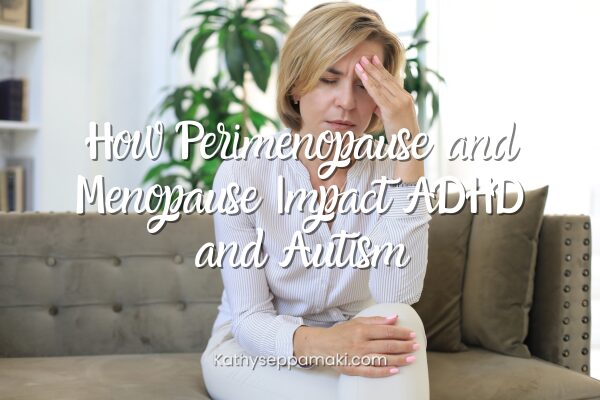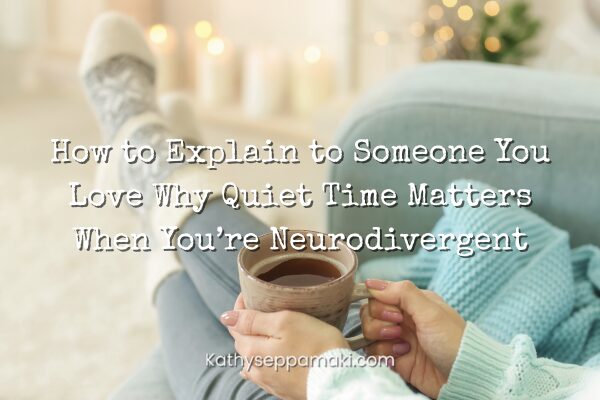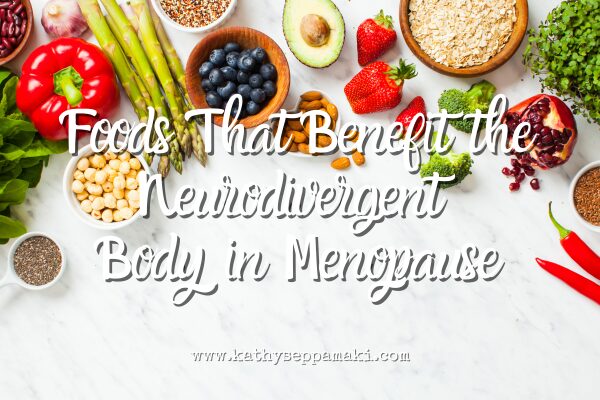For many women, the transition into perimenopause and menopause brings a whirlwind of physical and emotional changes. But for women who are also neurodivergent—living with ADHD, autism, or both—this phase of life can be even more complex, often intensifying existing symptoms and making daily functioning more difficult. Unfortunately, this intersection is still widely misunderstood, leaving many women feeling overwhelmed, invalidated, and alone.
In this blog post, we’ll explore how shifting hormones during perimenopause and menopause can affect ADHD and autism, and offer some validation, insight, and encouragement for navigating this challenging life stage.
The overlooked connection between hormones and neurodivergence
Many women with ADHD and/or autism are diagnosed later in life, often after their children are grown or when career demands shift. For some, the process of self-discovery begins right around the same time as perimenopause hits. It’s no coincidence. The drop in estrogen during this time can significantly impact brain function, especially executive functioning, mood regulation, and sensory processing.
How perimenopause affects ADHD
Estrogen plays a key role in regulating dopamine, which is already in short supply for those with ADHD. When estrogen levels begin to fluctuate in perimenopause, ADHD symptoms often worsen.
Common changes include:
-
Increased brain fog and forgetfulness
-
More difficulty with focus and task initiation
-
Heightened emotional reactivity or irritability
-
A resurgence of anxiety or depression
-
Sleep disturbances that worsen cognitive fatigue
Many women describe this stage as feeling like their ADHD has suddenly become “unmanageable,” even if they had decent coping mechanisms in place before.
How menopause influences autism traits
For autistic women, the hormonal shifts of menopause can intensify sensory sensitivities, emotional dysregulation, and social burnout. Many women report feeling like their lifelong masking strategies start to fail during this time.
Potential impacts include:
-
Increased sensory overwhelm (e.g., heat, sound, light)
-
More frequent shutdowns or meltdowns
-
Heightened anxiety and social withdrawal
-
Greater difficulty with emotional regulation
-
Feeling disconnected from one’s identity or role
The cumulative effect of all this can lead to a deep identity crisis, especially for those who spent decades masking their neurodivergence without knowing it.
The emotional toll
Add in the psychological weight of aging, shifting roles (like becoming an empty nester or caregiver), and a lifetime of being misunderstood, and it’s no wonder so many neurodivergent women hit a wall during midlife. Many describe it as a breakdown or unraveling, but it can also be the start of a powerful breakthrough.
What you can do
While this transition is challenging, there are ways to support yourself through it. Here are a few strategies:
-
Get evaluated and diagnosed, if possible. Understanding your unique brain wiring can be incredibly validating and help you access support.
-
Talk to your healthcare provider about hormones. Some women find relief through hormone replacement therapy (HRT), or bio-identical hormone replacement therapy (BHRT), though it’s not the right fit for everyone.
-
Rethink your routines. What used to work might not anymore. Simplify where you can, and allow flexibility.
-
Create a sensory-friendly environment. Tune into what soothes you—whether it’s weighted blankets, soft lighting, or noise-canceling headphones.
-
Connect with others. You’re not alone. Seek out community, whether in-person or online, with others navigating neurodivergence and menopause. There are SO MANY other neurodivergent women going through this right now. And we’ve all had to do it alone. But we don’t anymore!
-
Give yourself grace. This is a season of transformation, not failure. You are not broken, you are adapting.
Final thoughts
Perimenopause and menopause can feel like the rug has been pulled out from under you, but it can also be an invitation to unmask, to rest, to rediscover who you are beneath the expectations and performance. For neurodivergent women, this transition may be especially intense, but it can also be a time of powerful reclamation and rebirth.
You are not too much. You are not losing your mind. So be kind to yourself because you are meeting yourself more fully than ever before.




